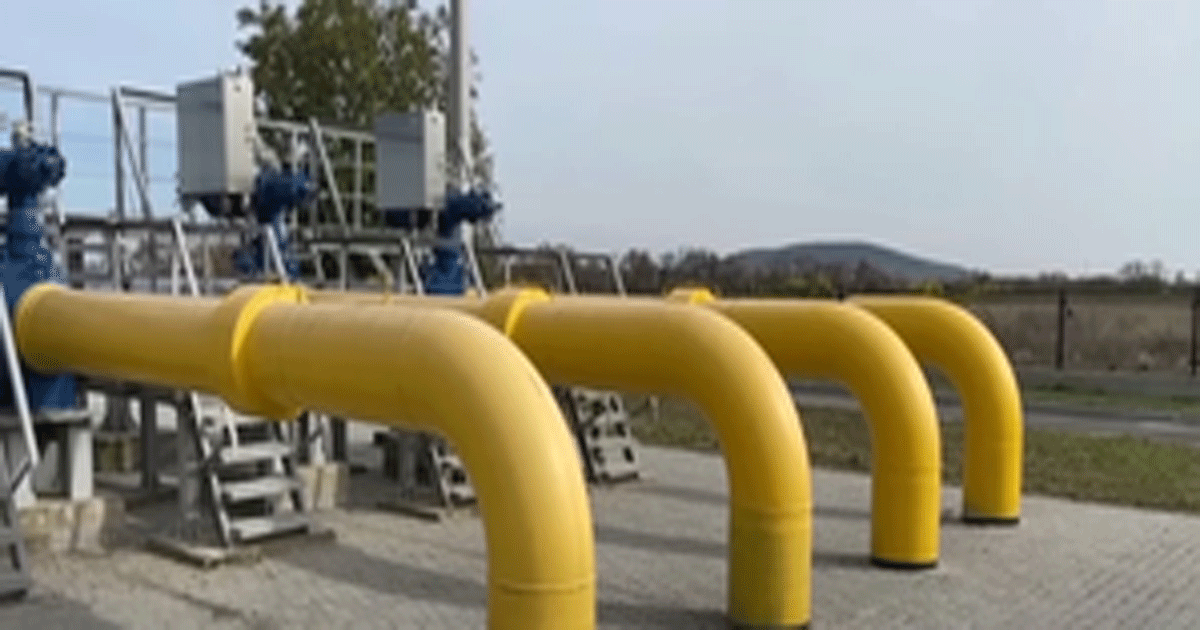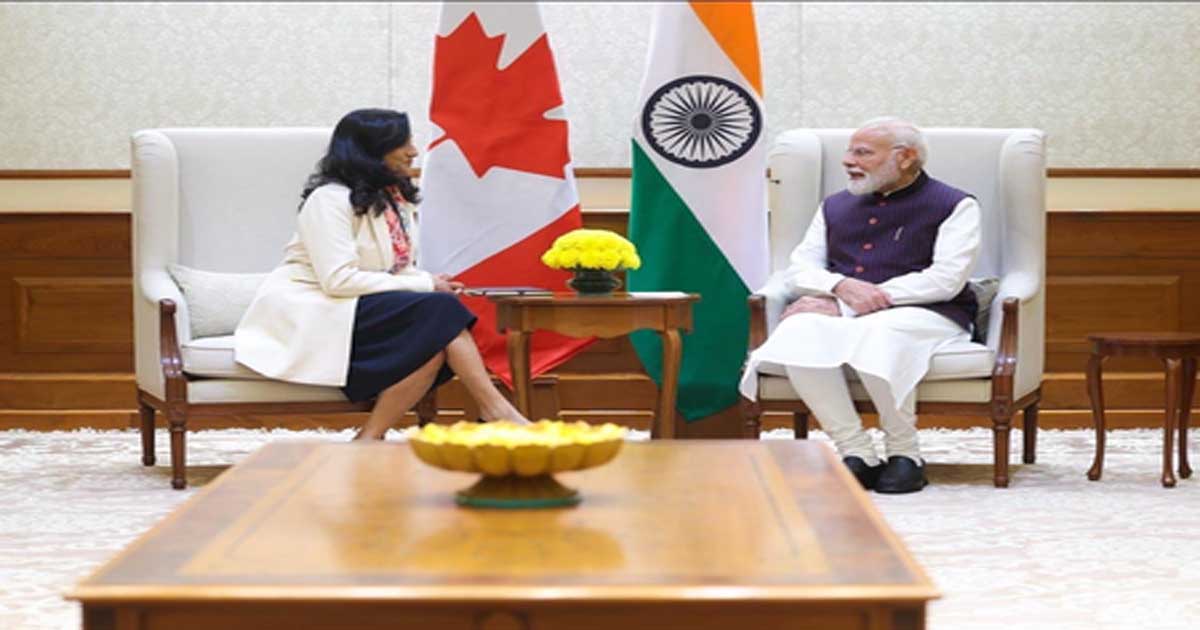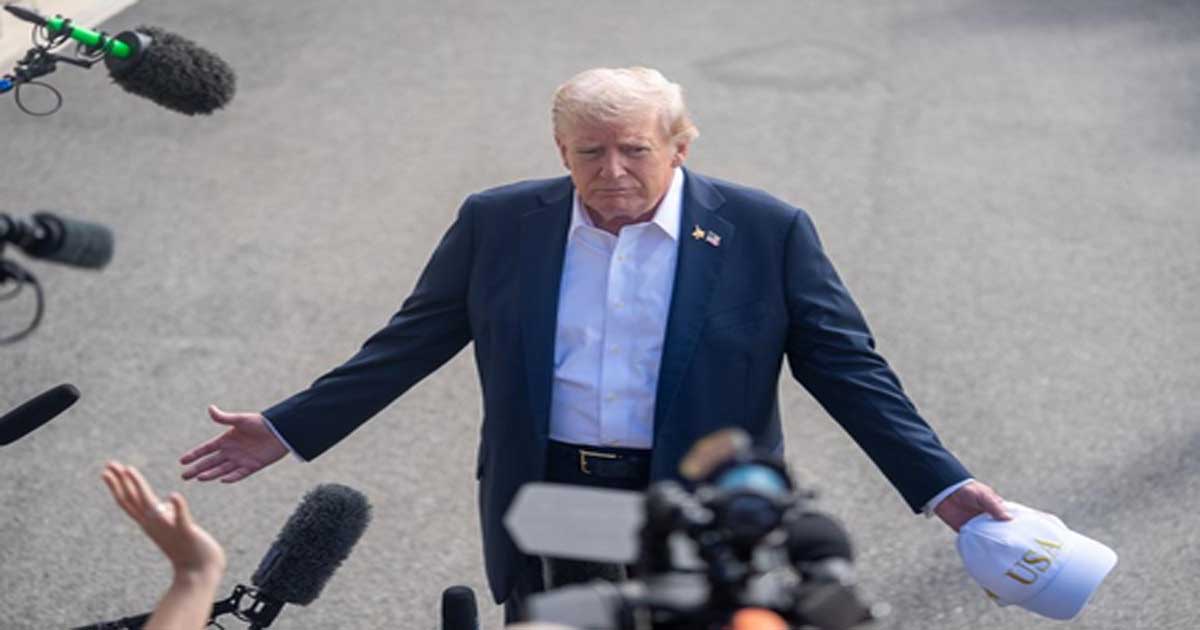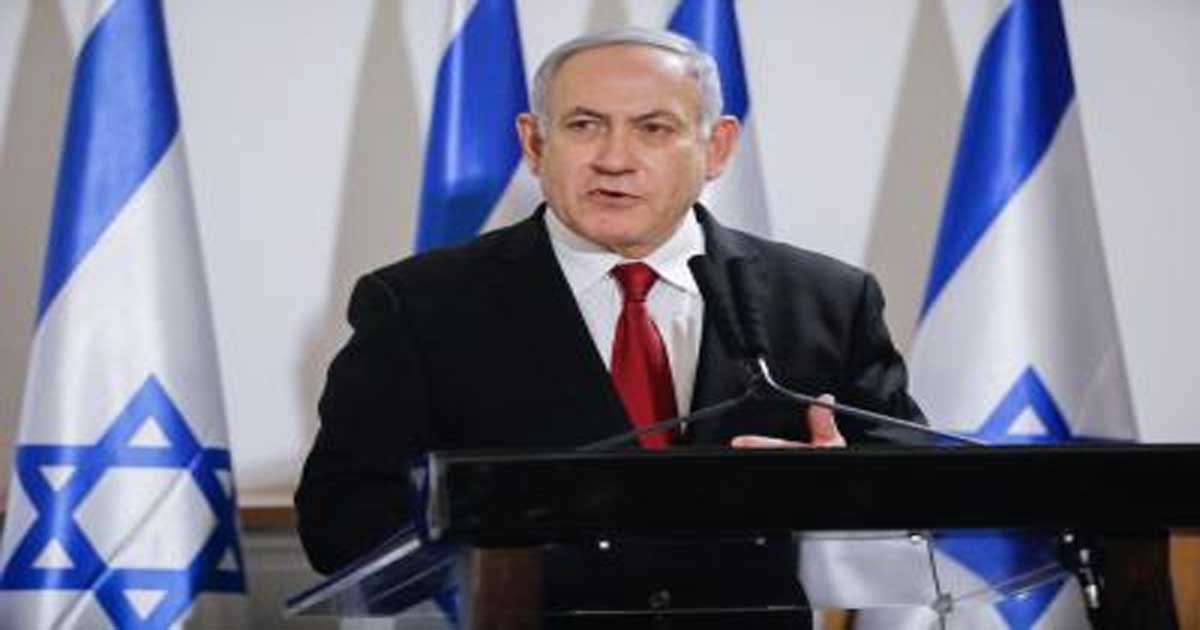International News
Ukraine’s halt of Russian gas transit raises supply, price concerns

Valletta, Jan 2: The halt in Russian gas transit through Ukraine has sparked fears of supply shortages and soaring energy costs, particularly in landlocked European nations like Slovakia.
Both Ukraine and Russia announced the stoppage on Wednesday, pushing some EU countries to resort to costlier energy alternatives.
Slovak Prime Minister Robert Fico on Wednesday said that stopping gas transit through Ukraine to Europe will have “severe consequences for all of us in the European Union (EU), but will not harm Russia.”
The stoppage follows Ukraine’s decision not to renew a 2019 gas transit agreement between its state-run Naftogaz and Russia’s Gazprom, which expired on December 31, 2024.
“At 07:00 a.m. (0500 GMT), in the interests of national security, the transportation of Russian natural gas through the territory of Ukraine was stopped,” the Ukrainian Energy Ministry said in a statement on Wednesday. Similarly, Gazprom confirmed that it has stopped gas supply due to expiration of key agreements and Ukraine’s refusal to renew them.
In a letter to the European Commission (EC) on Sunday, Fico condemned Ukraine’s gas transit halt as irrational and warned it would heighten tensions and harm the EU more than Russia. He also indicated his government might consider measures such as cutting electricity supplies to Ukraine.
Slovakia, heavily dependent on Russian gas, is among the worst-hit countries. It imported approximately 3 billion cubic metres of natual gas from Russia through Ukraine annually, accounting for two-thirds of its demand.
However, the EC has downplayed the potential impact, with a spokesperson saying that the European gas infrastructure is “flexible enough” to provide gas of non-Russian origin to central and eastern Europe via alternative routes, and that it has been reinforced with significant new liquefied natural gas (LNG) import capacities since 2022.
Mark Cigoj, editor-in-chief of the Croatian weekly 7 Dnevno, has said that Slovakia, Austria, and Hungary are particularly vulnerable, given their reliance on Russian gas and lack of direct access to LNG imports.
Slovakia’s Regulatory Authority for Network Industries, the country’s energy regulator, has forecasted household gas price increases of 15-34 per cent in 2025 without state energy assistance.
To cushion the impact, the Slovak government has allocated around 235 million euros ($244 million) for energy aid, further straining the country’s already tight budget.
SPP, Slovakia’s state-owned gas utility, on Wednesday assured continued supply but acknowledged the increased costs of alternatives. Moldova, which imports approximately 2 billion cubic metres of gas annually from Russia via Ukraine, has enacted measures on Wednesday to cut electricity usage by at least 30 per cent.
The measures include limiting street lighting, stopping escalators in some public and commercial buildings, and changing the working hours for high-energy-consuming areas.
In 2023, roughly 15 billion cubic metres of Russian gas were transported via Ukraine to Europe, accounting for around 5 per cent of Europe’s needs. Following the halt of Ukraine transit, the TurkStream pipeline under the Black Sea becomes the sole remaining route for transporting Russian gas to Europe.
According to the EC, the share of Russia’s pipeline gas in EU imports has plummeted from over 40 per cent in 2021 to about 8 per cent in 2023.
However, Cigoj noted that the EU must develop a clear plan for coordinating gas purchases among member states, warning that higher margins and transport costs will drive up gas prices, further fueling inflation.
While many European countries have significantly reduced their reliance on Russian gas since the outbreak of the Russia-Ukraine conflict, nations like Slovakia, Hungary, and Austria remain dependent on it.
Slovak Vice Premier and Economy Minister Denisa Sakova said on Tuesday that Slovakia is technically well-prepared for the stoppage of gas supplies, as the country has sufficient gas reserves and alternative gas supplies for the year of 2025.
However, she warned of challenges if the issue persists into the winter heating season next year.
Obviously, European countries will have to organise themselves to purchase significantly more expensive gas from other sources in the future, Cigoj said.
Markus Krug, deputy head of the gas department at Austria’s energy regulator E-Control, has said that Russian gas would likely continue to flow through Turkey, supplying Hungary.
He estimated that Slovakia’s gas supply could primarily come from Hungary, the remainder from Austria, the Czech Republic and Poland.
The TurkStream gas pipeline, with an annual capacity of 31.5 billion cubic metres, offers limited capacity to absorb increased demand. To address the shortfall, the EU will have to rely more heavily on LNG imports, which come at a significantly higher cost.
International News
SPM Modi hails efforts to impart ‘new momentum’ in bilateral ties during meeting with Canadian FM

New Delhi, Oct 13: Prime Minister Narendra Modi on Monday conveyed to Canadian Foreign Minister Anita Anand that her India visit would contribute to ongoing efforts to impart new momentum to the India–Canada bilateral partnership.
PM Modi hails ‘new momentum’ in bilateral ties during meeting with Canadian FM
Anand, the Minister of Foreign Affairs of Canada, called on PM Modi on Monday morning before holding discussions with External Affairs Minister (EAM) S Jaishankar.
Welcoming Anand, Prime Minister Modi recalled his visit to Canada in June this year for the G7 Summit during which he held an “extremely productive” meeting with Prime Minister Mark Carney.
“Prime Minister noted the significance of enhanced cooperation between the two countries in trade, energy, technology, agriculture and people-to-people ties. Prime Minister conveyed his warm wishes to Prime Minister Mark Carney and said that he looked forward to their upcoming engagements,” read a statement issued by the Prime Minister’s Office (PMO).
“I met with Prime Minister Narendra Modi this morning in New Delhi. Building on the momentum of Prime Minister Mark Carney’s meeting with PM Modi this summer at the G7 Summit, Canada and India are elevating the relationship between our countries, while maintaining our law enforcement and security dialogue and expanding our economic relationship,” Anand posted on X after the meeting with PM Modi.
Earlier, EAM Jaishankar said that the ties between India and Canada have been steadily progressing in the past few months, and the two nations are working to restore the mechanisms necessary to advance the partnership.
Welcoming Anand on her first visit to India as Canada’s Foreign Minister, EAM Jaishankar said, “India-Canada bilateral relations have been steadily progressing in the last few months. We are working to restore and reinvigorate the mechanisms necessary to advance our partnership.”
“As Prime Minister Modi noted during his meeting with Prime Minister Carney in Kananaskis, India’s approach is to move forward with a positive mindset. This morning, you met the Prime Minister. You have heard from him personally about our vision of cooperation and how best to realise it,” he added.
He also recalled the “productive” meeting between National Security Advisor (NSA) Ajit Doval and Canadian NSA Nathalie G. Drouin, calling it “an important first step towards enhancing our security cooperation.”
“Our foreign ministries at the level of the secretary of the deputy minister also met on September 19 to review the overall relationship. Our trade ministers spoke recently on October 11. So, when we look at Canada, we see a complementary economy, we see another open society, we see diversity and pluralism, and we believe that that is the basis for a close, sustainable and long-term cooperative framework,” EAM Jaishankar added.
He noted that India and Canada have prepared an ambitious roadmap to advance cooperation in various sectors, including science and technology, civil nuclear collaboration, AI, trade and agriculture.
“I’m glad that the two high commissioners have assumed their responsibilities in our respective capitals and are part of today’s meeting. This is our high commissioner with whom you have spoken,” the EAM added.
“Our responsibility as foreign ministers is to shepherd the process of rebuilding our cooperation and to ensure that it delivers on the expectations of our prime ministers and the interests of our people. It means not only taking initiatives in our particular jurisdiction, but also monitoring and integrating interactions across the entire breadth of the government. I look forward to doing so, working closely with you, Minister,” he added.
International News
I am good at solving wars: Trump says he will resolve Afghanistan-Pakistan conflict

Washington, Oct 13: US President Donald Trump has expressed his intention to mediate the border conflict between Pakistan and Afghanistan, claiming that he can bring an end to the dispute, referring to the other wars that he has “resolved”.
He made these statements as he was heading to Egypt for a summit on the Gaza peace process, which will officially mark the end of the two-year-long conflict in the Middle East, claiming it to be the eighth war he has resolved.
Speaking to reporters, Trump said, “This will be my eighth war that I have solved, and I hear there is a war now going on between Pakistan and Afghanistan.”
“I said, I’ll have to wait till I get back. I am doing another one. Because I am good at solving wars,” he said, adding that conflicts that lasted for decades were solved ‘relatively quickly’ during his tenure as the US President.
“Think about India, Pakistan. Think about some of the wars that were going on for years… We had one going for 31, one going for 32, one going for 37 years, with millions of people being killed in every country, and I got every one of those done, for the most part, within a day. It’s pretty good,” Trump said.
Speaking about the Nobel Peace Prize, which was accorded to Venezuelan opposition leader Maria Corina Machado, Trump said, “I did not do this for the Nobel. I did this for saving lives.”
“The person who got the Nobel Prize called me today and said, ‘I am accepting this in honour of you, because you really deserved it’. I’ve been helping her along the way,” he added.
Trump outlined several international disputes that he asserted were resolved during his leadership, including those between Armenia and Azerbaijan, Kosovo and Serbia, Israel and Iran, Egypt and Ethiopia, and Rwanda and the Congo.
International News
Netanyahu says Israel’s military campaign ‘not over’ despite Gaza ceasefire

Jerusalem, Oct 13: Israeli Prime Minister Benjamin Netanyahu said that the country’s military campaign “is not over,” on the eve of the planned release of all living Israeli hostages and hundreds of Palestinian detainees under the next stage of the newly implemented Gaza ceasefire with Hamas.
In a televised address, Netanyahu hailed the planned release of the 20 remaining living hostages as a “historic event,” Xinhua news agency reported.
“Wherever we fought, we won,” he said. “But the campaign is not over yet,” he added, without giving further details.
He said Israel still faces “very big security challenges” ahead. “Some of our enemies are trying to regroup,” he warned, vowing to ensure Israel’s security.
Earlier in the day, Israel’s military chief Eyal Zamir said that the country had achieved a “victory over Hamas.” In a broadcast statement, Zamir said the victory came through a combination of sustained military pressure and diplomatic efforts.
Zamir added that Israel remains “in the midst of a multi-front war.” He said the military “will continue to act in order to shape a security reality that ensures the Gaza Strip no longer poses a threat to the State of Israel and its civilians. Through our operations, we are reshaping the Middle East and our security strategy for the years ahead.”
The Israel-Hamas ceasefire went into effect on Friday, following more than two years of Israeli bombardments that devastated the Gaza Strip and caused famine.
-

 Crime3 years ago
Crime3 years agoClass 10 student jumps to death in Jaipur
-

 Maharashtra1 year ago
Maharashtra1 year agoMumbai Local Train Update: Central Railway’s New Timetable Comes Into Effect; Check Full List Of Revised Timings & Stations
-

 Maharashtra1 year ago
Maharashtra1 year agoMumbai To Go Toll-Free Tonight! Maharashtra Govt Announces Complete Toll Waiver For Light Motor Vehicles At All 5 Entry Points Of City
-

 Maharashtra1 year ago
Maharashtra1 year agoFalse photo of Imtiaz Jaleel’s rally, exposing the fooling conspiracy
-

 National News1 year ago
National News1 year agoMinistry of Railways rolls out Special Drive 4.0 with focus on digitisation, cleanliness, inclusiveness and grievance redressal
-

 Maharashtra11 months ago
Maharashtra11 months agoMaharashtra Elections 2024: Mumbai Metro & BEST Services Extended Till Midnight On Voting Day
-

 National News1 year ago
National News1 year agoJ&K: 4 Jawans Killed, 28 Injured After Bus Carrying BSF Personnel For Poll Duty Falls Into Gorge In Budgam; Terrifying Visuals Surface
-

 Crime1 year ago
Crime1 year agoBaba Siddique Murder: Mumbai Police Unable To Get Lawrence Bishnoi Custody Due To Home Ministry Order, Says Report












